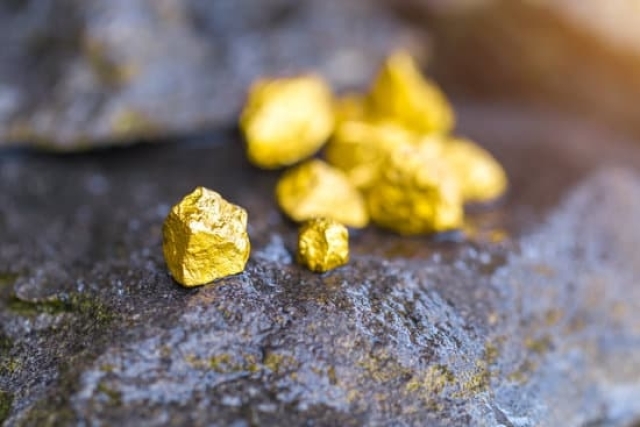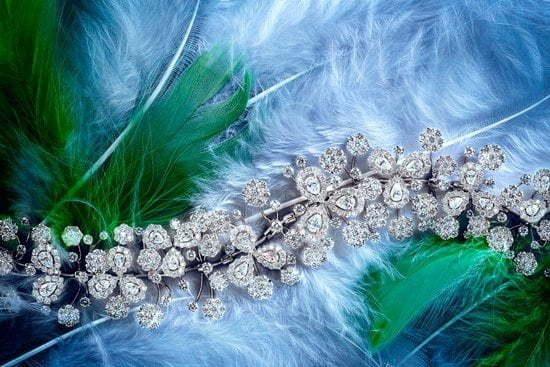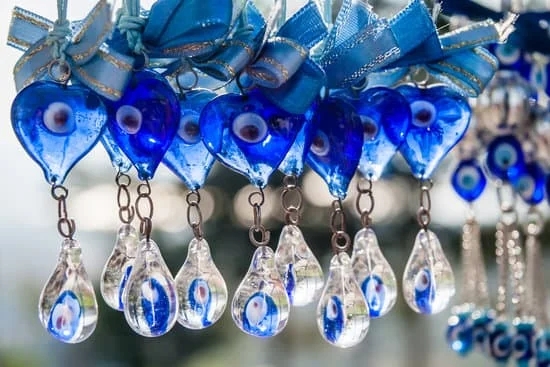Cleaning jewelry jobs is important to maintain the appearance and quality of the pieces. Not only can it add life to an accessory, but having a clean piece symbolizes the effort one puts into their appearance and wardrobe. Regularly cleaning jewelry jobs has its many benefits whether it’s a treasured family heirloom or a fashionable statement piece; tending to a piece often ensures that it will last for years to come.
Benefit I: Greater Longevity
Sterling silver pieces, gold-plated items, costume jewelry and diamonds all require different levels of maintenance but can be easily cleaned on your own without much expertise. A simple cleaning cloth, some lukewarm soapy water or diluted dishwashing liquid and an old toothbrush are enough to remove dirt and residue from most jewelry jobs. Doing this regularly will add longevity when properly cared for as dirt particles can damage delicate material such as chains and settings in stones over time.
Benefit II: Shine & Sparkle
Every item needs different methods of cleaning depending on the type of metal used such as silver, gold or platinum. Some metals look better with particular products such as stainless steel cleaner for silver jobs which do not contain harsh chemicals. It means that investing in polish specifically designed for shining up jewelry will make it look new again over time, giving dull items a renewed sparkle that helps set off any outfit choice you may make.
Benefit III: Accessorizing Outfits
Having sparkling accessories matching ones apparel helps one stand out even with the simplest of outfits. Necklaces, rings and earrings all become talking points allowing you to catch eyes anywhere from formal events to casual ones when done correctly and cleaned nicely with good care habits. An accessory drawer brimming with clean dripping pieces means endless fashion choices ready for any occasion no matter how dressed up or casual one plans on being at any given point .
Common Cleaning Products and Solutions for Jewelry Jobs
Jewelry cleaning jobs are often necessary for keeping precious metals and gems looking vibrant and radiant. It is important to be aware of different cleaning solutions so that the jewelry stays in its original good condition and does not become damaged or discolored. First, you should use warm water with a small amount of mild dish soap as a gentle solution to begin the jewelry cleaning process.
This can help remove dirt, sweat, and oil from the metal. When it comes to removing tarnish from sterling silver jewellery, you can mix a solution of 2 parts baking soda with 1 part water into an ammonia-free paste. Apply this paste onto a soft cloth and gently rub it on your silver piece to halt oxidation.
In order to clean gold or diamond jewelry without any commercial cleaning solution being needed, you can use a toothbrush with lukewarm water and rubbing alcohol for dirtier areas. A mild baby oil also works great on gold as well as diamonds since it helps restore their brilliance without further damaging the metal or stone from harsher chemicals.
For harder to reach spots on your jewelry, using an old soft electric toothbrush should do the trick. Additionally, you should always keep in mind making sure there are no pearls present when cleaning items with liquids since they will absorb liquid quickly causing them to weaken over time due to their porous nature.
Jewelry polishing cloths are also great for restoring shine back into your jewelry pieces post-cleaning them with liquids or pastes. These specially treated cloths have polishing agents such as aluminum oxide that help bring back some of their original glamour while being buffed out on the easiest but most effective way possible.
Some individuals even swear by using white vinegar too in order to help restore worn out jewelry pieces just like baking soda can be used for tarnish removal – though beware that some stones might be sensitive towards acidity which is why we recommend trying out on a test spot first before completely submerging them into this solution.
The Significance of Knowing How to Clean Various Types of Jewelry
Properly caring for jewelry is important if a person wants it to look its best for a long time. Cleaning jobs for jewelry include everything from cleaning valuable pieces of gold, silver and gems to modern costume jewelry. Knowing how to effectively clean different types of jewelry is essential because some materials require special care.
For example, ruby and diamonds are both hard stones, but they should not be cleaned the same way because diamonds are better suited to steam cleaning while rubies must only be washed with mild soap and water. Other materials like costume jewelry which typically consist of plastic, glass or semi-precious gems need more delicate handling than that required by gold or platinum metals.
The main benefits of knowing how to clean various types of jewelry properly include preserving the beauty and value of the pieces, making them look as fresh as when they were first acquired or even enhancing their appearance beyond the original state. Gold, silver and gemstones tend to get dulled easily due to being exposed to everyday dust, dirt and other elements that can reduce their luster if it’s not removed frequently or regularly polished.
Properly caring for these items will ensure that they retain their shine as well as maintain their current market value. In addition, proper cleaning methods can also prevent further damage from occurring like scratches on soft stone such as opals or bleaching caused by noxious ingredients used in certain metals cleaner products particularly those containing strong acids or ammonia.
Tips on Cleaning Different Kinds of Jewelry
Jewelry cleaning can be a daunting task for those who are unfamiliar with the various techniques and processes available. Knowing how to properly clean the different types of jewelry will ensure that you do not cause any damage to it, making it good as new and ready for wear again. This article aims to provide some useful tips on how to clean various kinds of jewelry effectively.
The first thing you need to consider before you start cleaning your jewelry is what type of material it is made out of. Different materials require different cleaning approaches, as they all have their own individual properties which must be respected when it comes to care and maintenance. An example of this would be gold jewelry; gentle soap and water is recommended rather than harsh alcohol-based cleaners.
Different items of jewelry should also be cleaned differently depending on the size and shape of them, particularly if intricate details or smaller components are present, such as beads or stones embedded in place. A soft toothbrush dipped in a mild soapy solution or mixed with baking soda can be used to scrub away dirt or grime from small crevices without damaging the material or any designs that may be present.
It’s best practice not to submerge jewellery items unless silver-plated pieces, offering greater resistance against rusting than silver alone contains other base metals in its composition. Dip these items into hot water and let them sit for about 15 minutes before using a soft cloth to rinse off any remaining dirt particles then buff dry with a separate cloth.
For items containing precious gems or pearls, avoid using harsh liquids or detergents as these can damage their delicate surfaces over time; opt instead for cotton balls dabbed in mild soap solution which should act as enough removal method in most cases. Items made from porous materials such as opals may require special attention due only specialist approved cleaning agents being use when attempting any kind deep clean approach; ensure you seek professional guidance before attempting yourself.
Finally, store all your jewellery items separately on an airtight container utilizing felt insert protectors; this will help preserve their organic luster by keeping dust particles at bay while providing protection against humidity levels if placed inside wardrobe drawers etcetera.
Step-by-Step Directions to Properly Clean Jewellery
Step 1: First, you will want to sort out your jewellery collection by the type of material used; typically silver items need to be treated differently than gold and gemstones. If there are any stones set in your jewellery, examine them to ensure they can take a commercial cleaner or if they need a more delicate approach.
Step 2: Once the items have been sorted carefully prepare an appropriate detergent bath following manufacturer instructions; some mild soaps are suitable for jewellery cleaning. Typically combine a small amount of detergent with lukewarm water and stir gently until it forms bubbles.
Step 3: Place your jewellery items into the detergent and let them soak for five to ten minutes. This will loosen up any dirt or grime, making it easier to clean off when brushing the pieces.
Step 4: Gently brush the jewellery pieces with either a soft toothbrush or a jewellery brush with soft bristles. Take extra care on any stones set in the piece, as not to dislodge them from their setting. When all sides of each item have been scrubbed dry using a soft cloth, rinse the jewel under cool running water ensuring any suds of soap are removed fully in order to prolong its shine.
There are multiple categories of jewelry – stone-set jewelry, gold jewelry, and silver jewelry – that require slightly different approaches when it comes to cleaning them. For all types of jewelry, however, people must ensure they take appropriate steps towards cleaning processes that will not damage their belongings while still leaving them sparkly fresh.
When utilizing soap-and-water solutions for stone-set and silver jewelry, people should use as little detergent as possible due in part because it may contain harsh chemicals which could potentially dull their precious pieces over time. Additionally, those opting for an at-home solution should invest in tools like clean cloths that don’t fray too easily and soft toothbrushes or special jewelry brushes with soft bristles so that nothing gets scratched during cleaning efforts.
Once all scrubbing is completed, people should pay close attention to rinsing off any excess product left behind on their jewels as this could lead to further dulling down the shine over time if left unattended.
Cleaning gold jewelry is much simpler than its counterparts due to gold being less prone corrosion than silver or other metals and thus requires less aggressive cleaning techniques than its notably harder materials counterparts. With this type of jewel, warm (not hot.)
water and neutral pH liquids like dish soap is usually sufficient enough without needing anything else added such as harsh chemicals found in commercial cleaners. All gold should be gently line dried then buffed using a dab of liquid polish before returning it back into storage where it can once again glitter proudly.
Protective Clothing and Gear for Cleaning Jewelry Jobs
When cleaning jewelry there are a few pieces of protective clothing and gear that should be worn in order to keep yourself safe. Protective gloves needs to be the most important thing when it comes to jewelry cleaning because some jewelry can be sharp or have gemstones and diamonds that may cut and scratch your skin if you are not wrapped properly.
The second piece of protective clothing is an apron, which keeps both your clothes and skin safe from any accidental splashes or spills while washing the jewelry. Thirdly, safety glasses should also be worn to protect you from unwanted particles getting into your eyes while cleaning the jewelry.
Another safety precaution that should be taken when it comes to cleaning jewelry is wearing a face mask, which helps filter out any dust particles while you are working with small parts such as gems or stones. A full-face guard provides further protection against any hazardous materials you may come into contact with during your task.
Another piece of gear that will come in useful for cleaning jobs is a handkerchief in order for one to wipe their hands clean of any residue that remains on them after working with certain types of chemicals used for getting a deep clean on particular pieces.
Lastly, appropriate lab coats should always be worn when dealing with laboratory chemicals such as ammonia or alcohols used within the process of bringing some members back to their original shine. Chemicals such as these can cause allergic reactions if not handled correctly, so having this extra layer of protection between you and them will ensure greater safety measures are being taken while still maintaining professional results on every cleaning job completed.
Having all these pieces together make sure that one has covered all necessary bases when it comes time to actually begin work on whatever piece they have decided to launder.
Maintenance Tips to Keep Jewelry in Good Shape
Cleaning jewelry jobs can often be a delicate task, as some pieces of jewelry can easily get scratched or otherwise damaged if done improperly. It is important to learn the most effective ways to keep your jewelry in good shape so that it lasts for many years. Jewelry maintenance does not have to be complicated and simply requires consistency and hygiene when handling your jewelry.
One of the first and most important tasks you can do to maintain your jewelry is to store them properly. Whether you choose a velvet-lined jewelry box or plastic cases, storing each piece individually helps make sure that individual pieces do not rub against each other and get scratched or tangled.
Additionally, when storing pieces with clasps or fastening elements make sure those are secure before putting them away; this will help reduce the risk of them getting opened or broken over time.
When cleaning silver, gold, diamonds and gemstones make sure you only use appropriate cloths and solutions such as those advocated by jewelers. Amateur cleaning with common household liquids like vinegar or soda may damage certain kinds of metals causing corrosion while specific stones like pearls require even more gentle care in order to avoid discoloration or fading of colors on stones like lapis lazuli or turquoise.
Also refrain from wearing your jewelry in wet places such as swimming pools since chlorine is highly aggressive and corrosive towards some gems and metals damaging them significantly in short amounts of time leading to costly repair bills later on.
Finally it is paramount to bear in mind the general advice always gifted by experts: never perform any complex maintenance job at home unless you are a professional with tools similarly used for acrobatics – leave all complicated jobs up to an authorized expert instead. This way minor scratches from haphazard attempts might not turn into irreparable damages threatening long term value as well as beauty of a beloved piece of jewelry.
Conclusion
Cleaning jewelry can be a tedious but important job. Jewelry cleaning involves using specialized tools and products like polishing cloths, steam cleaners, and metal solutions. Each one of these solutions is used depending on the type of metal or jewel being cleaned.
Polishing cloths are primarily used for gold and silver pieces, although metal solutions are also necessary for polished metals such as brass and copper. Steam cleaners have become increasingly popular with fine jewelry owners due to their ability to clean diamonds and other gems without leaving any damage behind.
Regardless of the products used when cleaning jewelry, one thing remains constant: a regular and thorough cleaning routine will help extend jewelry’s longevity significantly. Many people don’t realize that dirt, grime and oils can accumulate on jewelry over time.
Even if someone isn’t wearing their favorite piece of jewelry, exposure to air inside most homes will still cause buildup of debris. Cleaning not only keeps the jewelry looking radiant but also prevents it from becoming worn or tarnished too quickly.
Finally, investing in professional cleanings every once in a while is key to ensuring long-term care of precious items. Jewelers offer services that are designed precisely for this purpose; they use electronic equipment that removes stubborn dirt or grime quickly or ultrasonic machines that are able to delicately scrub even gemstones without affected its integrity.
Most stores will also be able to spot potential issues with settings or other components making them ideal partners in maintaining beautiful items of treasure forever. In light of this, cleaning jewelry regularly is an investment in its longevity; even simply wiping them down at home can make all the difference between crisp and dingy collections alike.

Welcome to my jewelry blog! My name is Sarah and I am the owner of this blog.
I love making jewelry and sharing my creations with others.
So whether you’re someone who loves wearing jewelry yourself or simply enjoys learning about it, be sure to check out my blog for insightful posts on everything related to this exciting topic!





